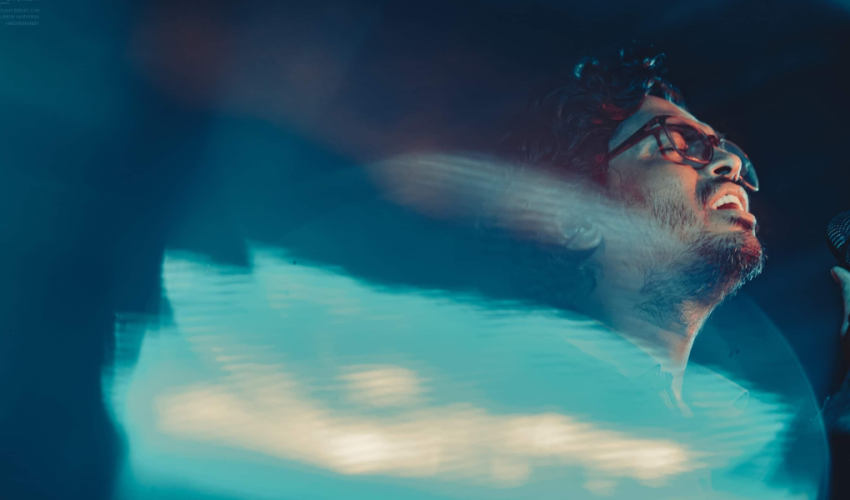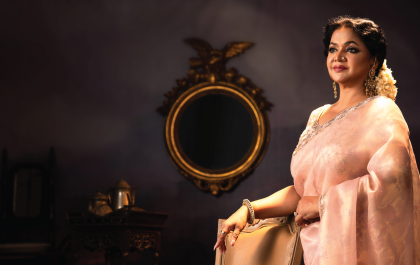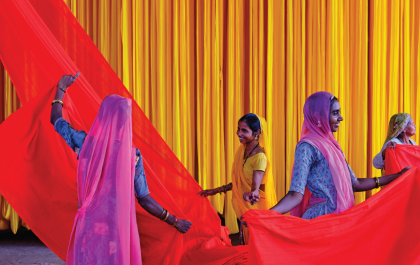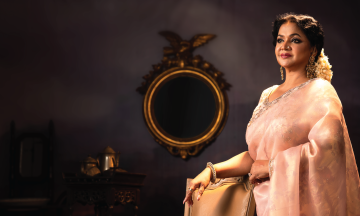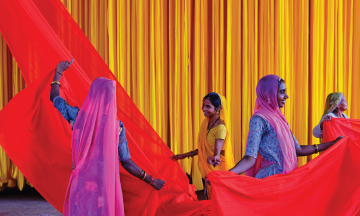By Faruque Ratul
Mejbaur Rahman Sumon wrote and directed the critically acclaimed film Hawa, which was recently shortlisted for the Golden Globes Award of the Hollywood Foreign Press. Sumon is also a member of the widely popular band Meghdol. In conversation with MWB, Sumon enlightens his fans about his creative processes as a filmmaker and a musician
At what point in your life did you start writing scripts, and consider filmmaking?
It happened quite slowly for me. Just like people want to do a lot of things when they are young, I too wanted to do a lot of different things. I’ve been writing from a very young age. I painted as well. I’ve done music. I tried a lot of different creative pursuits.
I’ve been watching films since childhood, first with cousins and my boro mama, who introduced me to some greats, and then later with university friends and my bandmates, who helped diversify my exposure to films.
The thought of becoming a filmmaker took root during my college days, watching films of Ritwick Ghatak, like Ajantrik, and Meghe Dhaka Taara, Satyahit Ray’s films, and various international works from Korea, Iran, Europe, and of course, Hollywood. There were very few outlets for international films, so I’d have to go to Alliance Francaise or the German Cultural Centre.
A lot of my other creative pursuits like writing, music, art, also coalesced into my fascination for film, and contributed to my journey towards becoming a filmmaker. I co-wrote my first script for television when I was still in university.
How did you come up with the story of Hawa?
I will call Hawa a modern fairy tale. Hawa’s genre can be considered as drama. It can also be called a mixed-genre film, as it is quite difficult to categorize it as that of a specific genre.
“Our earth is also a miraculous plane of existence”
I wanted to tell a story of the lives of fishermen on the sea, and through that story I wanted to show some magic realism. I got inspired to write this mythology of the sea from the story of Manasamangal Kāvya, a thousand-year-old local folk story, which I juxtaposed with the story of Behula-Lakhindar, with the roles reversed, so that Chand Sadagar, who is the innocent victim in Manasamangal Kāvya, is the villain in Hawa, because through the character of Gulti, I wanted to make some commentary on women in contemporary society who have to struggle against many obstacles, and often achieve their goals through great personal loss.
I showed that the story traverses the plane of magic realism as well as being grounded in realism. I wanted to make the story relevant to the film audience of 2022.
When a story-teller narrates a story, they also try to express some of their own philosophy or interpretation of the story as well through their narration.
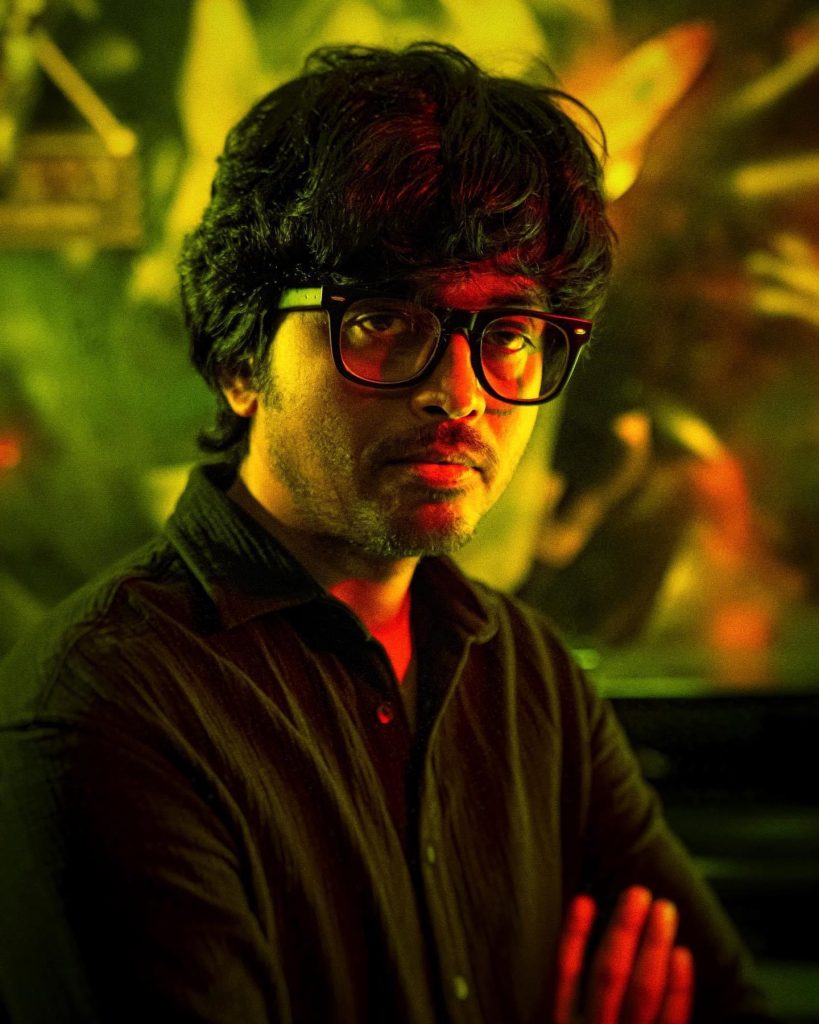
Was Samuel Taylor Coleridge’s The Rime of the Ancient Mariner also an inspiration for the story?
Actually it is quite a coincidence. As I said before, my story was inspired by Manasamangal Kāvya. While making the film, my friend Raseed Sharif Shoaib, who composed the music for the film, first told me that the framing of my story matches The Rime of the Ancient Mariner. This was again repeated by many to whom I have shown the film.
However, the fact that the story kind of matches the story in the poem is a coincidence, and I am quite happy that people are seeing such similarities.
What challenges do you face as a filmmaker?
The way the film industry works cannot change so easily. I would say that the Bangladeshi cinema industry did not reach a very “smart” state till now. Our thoughts about films in Bangladesh have not expanded a great deal or reached a very “strong” state yet. So in that regard, the film audience has to contribute a lot. Bangladeshi audiences need to watch more films.
Industrial change requires a lot of thinking, and a lot can be done from the governmental standpoint. We could increase the number of cinema halls to accommodate audiences and offer a diversity of films, and create a standardized environment. The problem we have in the foundation of our industry is the “system,” which is based on outdated concepts. There is no modernity in the thoughts about making films, but the old mindsets about filmmaking persist. There are no contextual ideas, or thoughts that are relevant to the current time period while making films.
Relevant thought processes while making films will happen if the old “system” of thoughts about filmmaking is changed.
Aside from these, I do not think there are any big problems for making a film in this country.
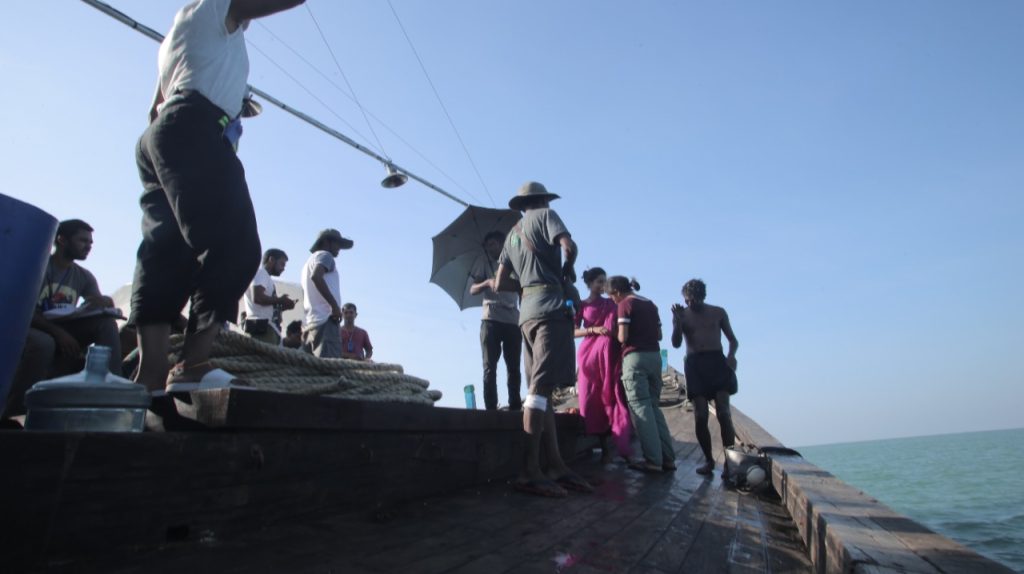
What are your feelings about the international plaudits that Hawa is receiving? Did you expect any of it?
I did not make the film with the expectation that it will be watched by a lot of people. As a filmmaker, obviously I wanted people to watch my film, but I did not make it with the goal that it has to be watched by everyone. My goal was to tell my story in my own way, and I wanted the film audience to get out of their “habit” of watching a certain kind of Bangla film.
The fact that people got out of the habit of watching their usual films that come out in Bangladesh to watch my film Hawa made me very happy, and it made the entire team very happy. We could not participate in many film festivals due to the pandemic and many different reasons unfortunately.
Unfortunately, along with the positive response, Hawa has also received a lot of pushback in the form of lawsuits. How did you cope?
Regarding Hawa what bothered me was people forming opinions about it before even watching it. Some people started calling it a copy of a well-known film called Sea Fog. After people watched the film, they realized that it was not a copy of Sea Fog, which was about human trafficking.
Some feminist critics of the film criticized the portrayal of a woman character in the film, and some even described it as a misogynistic story, without even watching the film.
As for the lawsuits, yes, we faced a lawsuit about the treatment of a bird shown in the film, and it has been resolved. We faced criticism about the obscene language used by the fishermen in the film. Here, I would like to say that the words that are used by fishermen in such a setting are much more obscene than what was shown in the film.
I am not going to tell a story as per people’s expectations. I will tell political stories, and sometimes I will tell stories from a religious perspective. I can talk about many different aspects of society through my stories. I do not want to just tell stories about love and relationships through my art form.
So when someone wants to tell stories in their own way, a lot of questions are raised. This happens to every artist who wants to express their philosophy.
Would you call yourself a perfectionist?
I think every filmmaker wants to be a perfectionist. It really depends on the quality of the work to determine how much of a perfectionist one can be. As for me, I do have a little bit of an obsession with details as a filmmaker about my own films. Since I am a very visual storyteller, and I like to tell my stories through visual mediums, I do care about the details a lot.
I do not want to make a film just for the sake of telling stories, but I want the story to make it visually sensible. Therefore, logically I have a little bit of a detail-oriented mindset, which can be described as perfectionist.
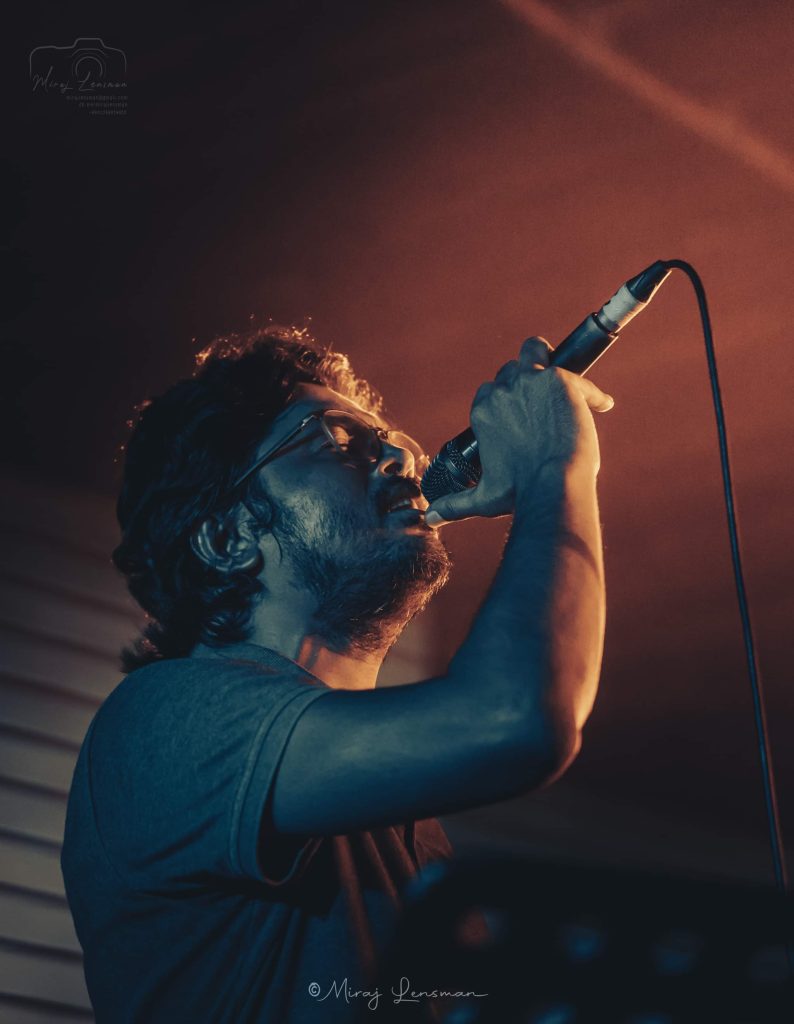
Let’s talk about Meghdol now. How was the band formed?
Meghdol basically started as a collaboration between three friends, who are Masud Hasan Ujjal, Shibu Kumer Shil, and me. When the three of us were studying at Charukola, all three of us used to sing individually. The interesting thing was that all three of us used to compose songs, and write lyrics. All of our philosophies or understanding about life or thoughts about it matched and were very similar to each other.
The three of us began performing the songs in different programs and events of Charukola. A few more friends of Charukola started joining us during these performances, such as Rasheed Sharif Shoaib, Amjad Hossain, MG Kibria, Tanbeer Dawood Rony, and Shourov Sarkar.
Someone played the flute, and someone performed the songs. So while doing this, it just so happened that we had a lot of songs written down. Therefore, we ended up writing a lot of songs, almost 15 to 20, even before Meghdol was formed.
Then we thought that we needed a name for our group. At Aziz Super Market we had an animation firm called Graphical Echoe. Here we used to do graphics designing and 2d animation work. We had a few instruments there such as a harmonium, a guitar, and a dhol. We used to practice our songs in the late afternoon or in the evening. So through this, eventually and very gradually Meghdol was formed.
At one point, we decided to take the name Meghdol from a line in a poem written by Charles Baudelaire, which goes “I love these amazing clouds.”
We first performed with the name Meghdol, which means a group of clouds, at Dhaka University Charukola, and from there our journey started. We have released two albums since then, and now we are working on our third album, which we will release soon. We have already released some of the songs of our third album on Spotify and YouTube. The complete album will come out by the end of this year.
What’s next for Mejbaur Rahman Sumon?
I do not like to plan too far ahead into the future. My plan is to begin working on the film for the script I have written. Let us see what happens.




